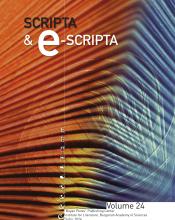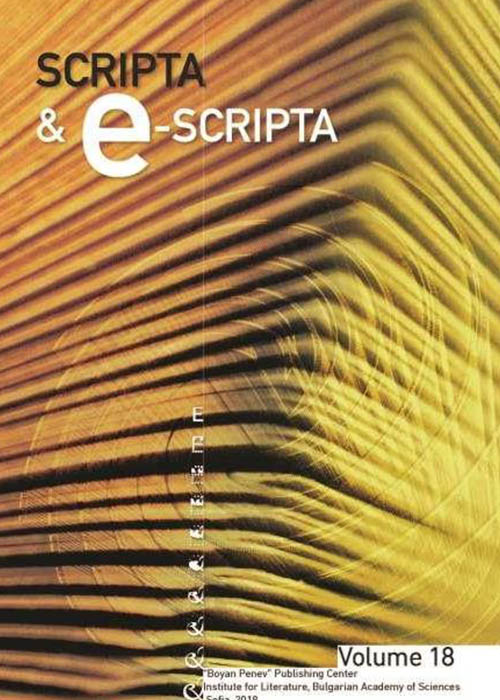One Peculiar ‘Topos’ in the Historical-Apocalyptic Literature

- Author(s): Ivan Iliev
- Subject(s): Scripta //
-
Published by: Institute for Literature BAS

- Print ISSN: 1312-238X
- Summary/Abstract:
The creation of a text in the Middle Ages was a process of superimposition of persistent patterns and ‘topos’ formulas that had acquired universal meaning. It is very difficult to point out a historical-apocalyptic text that consistently conveys the Greek original, without exception all translated works have the intervention of the Slavic scribe who amends, adds or abridges the text. This is a natural process, especially for this type of literature, which has no liturgical purpose, it is outside of following the canon and the liturgical statute. The main reason for the compilation nature of historical- apocalyptic literature is the desire to express and highlight the current local (in most cases – Bulgarian) point of view on the events that took place, to adapt the images of historical figures to the current reality.
Journal: Scripta & e-Scripta vol. 24, 2024
-
Page Range: 249-258
No. of Pages: 10
Language: English - LINK CEEOL:
-
Ivan IlievAssoc. Prof. PhD, Plovdiv University, BulgariaDescription
Ivan I. Iliev has received PhD from the Institute for Literature, Bulgarian Academy of Sciences) and now is an Assistant Professor at the Department of Bible Studies, Faculty of Theology, Sofia University “St Kliment Ohridski”. He has a degree in Classical Philology and a Master’s degree in Old Church Slavonic from Sofia University. His interests include manuscript studies, Russian literature, eschatology and apocalypticism, Slavic studies, Classical Latin, medieval history and literature, textual criticism, and etymology.
-
SUBJECT: Scripta //
-